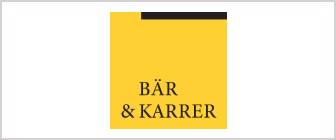On July 1 2016, new rules against bribery in the private sector entered into force. Their aim is to provide a more effective legal framework for the prosecution of private sector bribery in view of Switzerland's globalised economy, as well as the numerous international sports associations headquartered in Switzerland.
To date, bribery in the private sector has only been regulated by the Swiss Act against Unfair Practices. The relevant provisions were only applicable if private sector bribery distorted competition. As of July 1 2016, this will no longer be the case. Private sector bribery is now codified as an offence in the Swiss Criminal Code, which broadens its scope of application. It now also covers, for example, corrupt conduct in connection with the granting of sports events such as the Olympic Games or the football World Cup.
Further, private sector bribery now constitutes a public offence unless it is deemed to be a so-called minor case. Prosecution of private sector bribery will therefore no longer depend on filing a criminal complaint in all cases. However, as the new provisions do not specify what qualifies as a minor case, it is uncertain what will fall into this category.
What remains unchanged under the new rules is the maximum penalty for private sector bribery of three years imprisonment or a fine. This also means that, as was the case before, private sector bribery does not qualify as a predicate offence to money laundering.
For companies, it is important to note that active private sector bribery may lead to concurrent corporate criminal liability. Therefore, a company may be penalised in addition to its employee if it is responsible for failing to take all reasonable organisational measures required to prevent the offence. While this also applied under the old regime, the broader scope of the new rules and the qualification of private sector bribery as a public offence (except in minor cases) will lead to a higher exposure of companies to prosecution.
This risk may be addressed by means of employee training, specific checks and controls, and whistleblower hotlines. In addition, contracts for the provision of goods and services can be amended and internal codes of conduct can be adjusted, if necessary. In the context of M&A transactions, companies' higher exposure will need to be taken into consideration in due diligence and purchasers' contractual protection.



